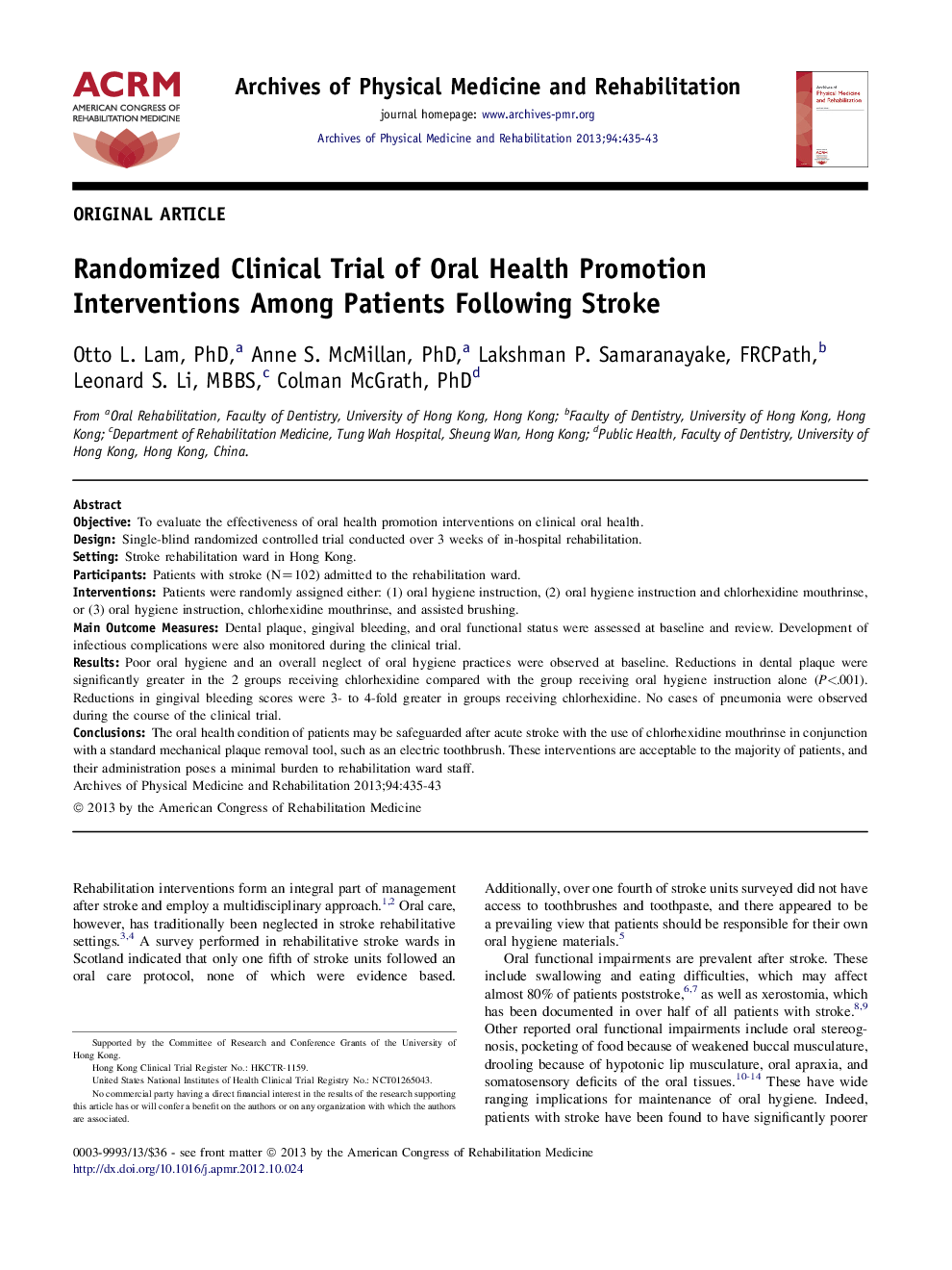| Article ID | Journal | Published Year | Pages | File Type |
|---|---|---|---|---|
| 3449243 | Archives of Physical Medicine and Rehabilitation | 2013 | 9 Pages |
ObjectiveTo evaluate the effectiveness of oral health promotion interventions on clinical oral health.DesignSingle-blind randomized controlled trial conducted over 3 weeks of in-hospital rehabilitation.SettingStroke rehabilitation ward in Hong Kong.ParticipantsPatients with stroke (N=102) admitted to the rehabilitation ward.InterventionsPatients were randomly assigned either: (1) oral hygiene instruction, (2) oral hygiene instruction and chlorhexidine mouthrinse, or (3) oral hygiene instruction, chlorhexidine mouthrinse, and assisted brushing.Main Outcome MeasuresDental plaque, gingival bleeding, and oral functional status were assessed at baseline and review. Development of infectious complications were also monitored during the clinical trial.ResultsPoor oral hygiene and an overall neglect of oral hygiene practices were observed at baseline. Reductions in dental plaque were significantly greater in the 2 groups receiving chlorhexidine compared with the group receiving oral hygiene instruction alone (P<.001). Reductions in gingival bleeding scores were 3- to 4-fold greater in groups receiving chlorhexidine. No cases of pneumonia were observed during the course of the clinical trial.ConclusionsThe oral health condition of patients may be safeguarded after acute stroke with the use of chlorhexidine mouthrinse in conjunction with a standard mechanical plaque removal tool, such as an electric toothbrush. These interventions are acceptable to the majority of patients, and their administration poses a minimal burden to rehabilitation ward staff.
